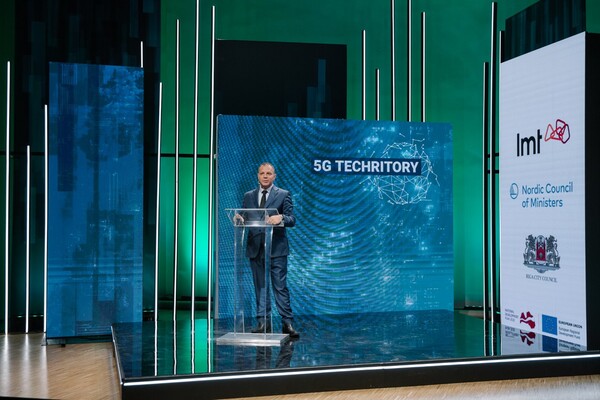Baltic Sea digital twin to be developed by Latvia
The Baltic Sea digital twin is expected to provide a simulated environment where it will be possible to model the effects that human activity has on the sea.
Latvia has launched an initiative to develop a digital twin of the Baltic Sea to help combat the effects of climate change.
The announcement was made at the 5G Techritory forum where the 5G world gathers annually to discuss the industry’s most pressing topics.
Simulated environment
The Baltic Sea digital twin is expected to provide a simulated environment where it will be possible to model the effects human activity has on the sea as a way of better planning and building innovations that impact it.
The concept was presented by Marios Nicolaou, 5G strategist and programme director at 5G Techritory. He laid out the components of the digital twin concept, which is made up of data and marine instrumentation, connectivity via telecoms and satellite, the digital twin engine powered by machine learning (ML) and artificial intelligence (AI), and policy and legal action.
“Our aim is to foster the cooperation between industries and implement new solutions that would fuel economic growth and ensure the natural regeneration of the sea”
A series of workshops is planned with corresponding specialists to identify the extent and array of pollution and degradation that is wished to be tracked and impacted. Available data will be mapped to be used for the twin, identifying the practical aspects of connectivity, building the engine, as well as discussing the necessary action regarding policy and legal framework to support the digital twin, the forum reports.
According to 5G Techritory, the Baltic Sea is one of the most polluted seas in the world, and urgently needs to be renewed and regenerated in order to improve the well-being and growth potential of the nations surrounding it.
“The Baltic Sea’s digital twin will be a meaningful component to accomplishing Mission Sea 2030, using the latest technology to identify, model, and monitor the sea ecosystem,” said Janis Nigals, leader of mission sea at the Investment and Development Agency of Latvia.
“Our aim is to foster the cooperation between industries and implement new solutions that would fuel economic growth and ensure the natural regeneration of the sea.”
The initiative was discussed by a panel of experts, who collectively expressed the various expected benefits of the twin, which ranged from country-wide benefits for society at large, to driving innovation in individual industries.
The participating experts were: Raimonds Aleksejenko, deputy state secretary at the Ministry of Economics of Latvia; Inese Andersone, member of the Riga City Council; Viesturs Zeps, head of the board of Freeport Riga; Talis Juhna, prorector of science at Riga Technical University; and Janis Nigals, leader of mission sea at the Investment and Development Agency of Latvia.
- #Analytics
- #Data
- 5G
- 5G Techritory
- AI and Machine Learning
- Baltic Sea
- Connectivity & Data
- digital twins
- Governance and Citizen
- Investment and Development Agency of Latvia
- Latvia
- Legal
- Policy Making
- regulation




Leave A Comment